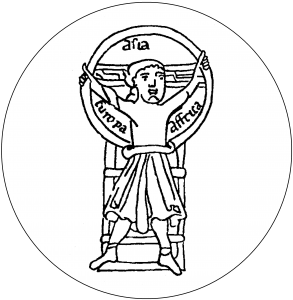Dieses Nachwuchskolloquium (Doktoranden und Promovierte) findet im Rahmen der
wissenschaftlichen Tagung zum Jubiläumsjahr 2013 der Universität zu Köln „Zurück in die Zukunft? – Die „alte“ Kölner Universität im Kontext der europäischen Universitätsgeschichte“ vom 24.-25. Oktober 2013 statt.
Organisation und Leitung: Prof. Dr. Dr. h.c. Andreas Speer (Köln),
Prof. Dr. Marian Füssel (Göttingen)
Die mittelalterliche Institution der „universitas magistrorum et scholarium“ als (Selbst)Organisation der Lehrenden und Lernenden ist die Keimzelle der modernen europäischen Hochschulen. Spuren des mittelalterlichen Selbstverständnisses der „universitas“ finden sich auch nach Reformation, Aufklärung, humboldtscher Reform und
Bolognaprozess in der heutigen Hochschulpolitik und im Alltagsleben der Professoren, Dozenten und Studenten. Diese spezifische Entwicklung der europäischen Universität ist Forschungsgegenstand einer eigenen Teildisziplin der Geschichtswissenschaft, der Universitätsgeschichte, deren nationale und internationale Bedeutung und Vernetzung stetig zunimmt.
Anlässlich ihres 625-jährigen Bestehens seit Gründung der „universitas studii sanctae civitatis coloniensis“ im Jahre 1388 lädt die Universität zu Köln im Oktober 2013 zu einer Fachtagung, auf welcher der neuste Forschungsstand zur Universitätsgeschichte präsentiert und diskutiert werden soll. Ein besonderer Fokus liegt auf der Frage, wie sich das eigentlich „Mittelalterliche“ in der Geschichte einer Universität entwickelt, erhalten und verändert hat, und welche Auswirkungen diese Traditionen auf tagesaktuelle Problemstellungen und zukünftige Entwicklungen von Forschung, Lehre und Wissenschaftspolitik haben.
Eröffnet werden soll die Konferenz von einem zweittägigen Kolloquium, welches sich vorwiegend an Nachwuchswissenschaftler aus den Bereichen der Kultur-, Sozial- und Wissenschaftsgeschichte richtet. Gegenstand des Kolloquiums ist die Frage nach den Studenten als Akteuren der Geschichte der europäischen Universität. Der Zugang
zum Thema soll epochenoffen, unter Betonung der europäischen Perspektive und interdisziplinär erfolgen.
Mögliche Themenkomplexe wären:
- Studenten als Individuen und gesellschaftliche Gruppe in Wort und Bild
- Studentenmigration im europäischen und außereuropäischen Kontext
- Lebenswege: Studium, Profession, Karriere, gesellschaftlicher Auf-und Abstieg
- Studentische Organisation und studentischer Einfluss auf Forschung, Lehre und „Hochschulpolitik“
- Konflikte, town vs. gown, studentische Protestkulturen, Obrigkeit und Disziplinierung
- Minderheiten, Randgruppen, Fremde und Außenseiter als Teil der „universitas“
- Wandel und Kontinuitäten im studentischen Leben in der longue durèe, von der Standeskultur zum Staatsbürger
Wir erbitten Vorschläge zu den genannten oder weiteren einschlägigen Themenkomplexen bis zum 31.3.2013 in Form eines Abstracts von ca. 300 Wörtern und eines aussagekräftigen CVs an andreas.berger@uni-koeln.de. Vortragssprachen sind Deutsch und Englisch. Ein Reisekostenzuschuss kann gewährt werden.
Kontakt/Rückfragen:
Andreas Berger M.A.
Universität zu Köln
Thomas-Institut
Universitätsstraße 22
50923 Köln
Deutschland
Tel.: (+49) 0221 470 2985
eMail: andreas.berger@uni-koeln.de
—
Call for Papers
“Universitas scholarium. The social and cultural history of the European student from the Middle Ages to the Present” („Universitas scholarium. Sozial- und Kulturgeschichte des europäischen Studenten vom Mittelalter bis zur Gegenwart“)
Scientific colloquium (Pre- and Postdocs) accompanying the anniversary
conference of the University of Cologne: “Back to the future? The “old” University of Cologne in the context of the history of the European university” („Zurück in die Zukunft? – Die „alte“ Kölner Universität im Kontext der europäischen Universitätsgeschichte“)
October 24th-25th, 2013, University of Cologne, Germany
Organization: Prof. Dr. Dr. h.c. Andreas Speer (Cologne), Prof. Dr.
Marian Füssel (Göttingen)
The mediaeval institution of the “universitas magistrorum et scholarium“ as a form of (self)organization of teachers and learners is the origin of the modern European universities. Despite the Reformation, Enlightenment, Humboldtian Reform and Bologna-Process, traces of the original mediaeval self-conception of “universitas”
can still be found in both the contemporary higher education policies and in the daily life of today’s scholars and students. The unique development of the European university is the topic of the History of Universities, a partial discipline of constantly growing international importance and cross-linking.
625 years after the foundation of the “universitas studii sanctae civitatis coloniensis“ in 1388, the University of Cologne hosts a scientific conference to present and discuss the current state of research of the History of Universities. A special focus will be put
on the question of how the “mediaeval” element in the history of the university developed to influence present and future challenges and perspectives of research, teaching and politics.
The conference will be opened with a two-day colloquium primarily addressing junior researchers from the disciplines History of Universities and History of Science, but also Cultural and Social History. Topic of the colloquium is the student as the protagonist of the history of the European university. The examination of the subject
is supposed to be interdisciplinary, comprise different time periods and especially focus on the European perspective.
Possible thematic areas may include:
- Students as individuals and as a social group in written and non-written sources
- Student migration in the European and the extra-European context
- Journey through life: studies, profession, career, social rise and fall
- Student organization(s), the influence of students on research, teaching and politics
- Conflicts, town vs. gown, student protest, authorities and repression
- Minorities, fringe groups, foreigners and outsiders as part of the “universitas”
- Changes and continuities in student life in the longue durèe, from social class to citizen
We would be glad to receive proposals covering those or other relevant
topics including an abstract of not more than 300 words and a
significant CV until March 31st, 2013. Please send your papers to
andreas.berger@uni-koeln.de. Accepted languages are German and
English. Limited travel grants are possible.
Contact/Questions:
Andreas Berger
University of Cologne
Thomas-Institut
Universitaetsstrasse 22
50923 Cologne
Germany
Tel.: (+49) 0221 470 2985
eMail: andreas.berger@uni-koeln.de

